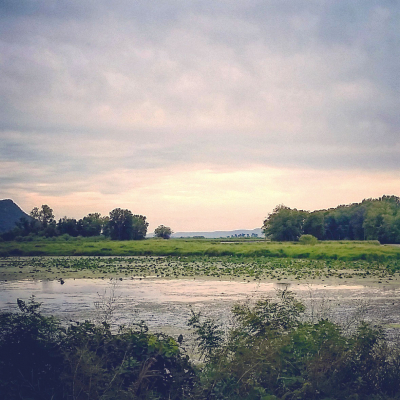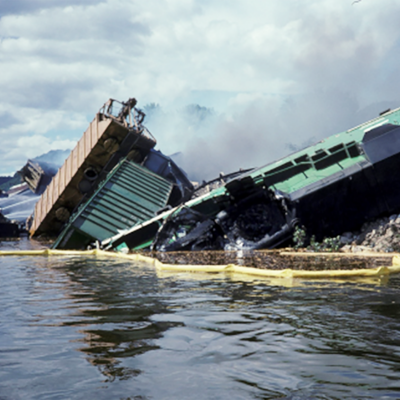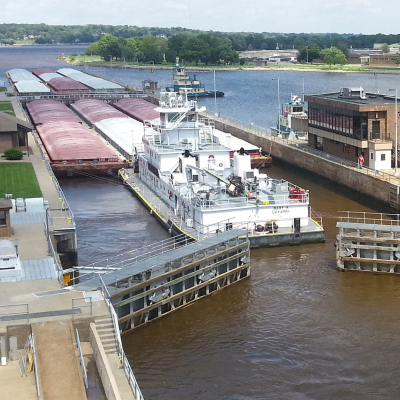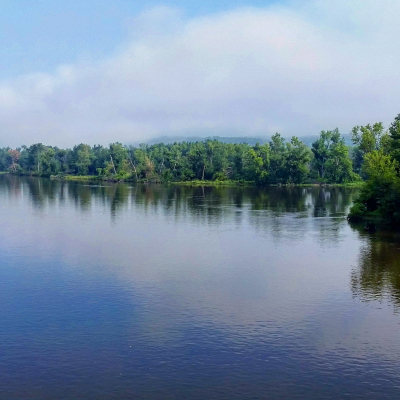The Upper Mississippi River Basin Association (UMRBA) is the Governor-established forum for interstate water resource planning and management on the Upper Mississippi River, representing its member states of Illinois, Iowa, Minnesota, Missouri, and Wisconsin. Through UMRBA, the states work diligently with federal agencies and stakeholders to advance multi-use management of the river, facilitating and fostering cooperative planning and coordinated management of the Upper Mississippi River basin’s water and related land resources. In acknowledging the complex nature of the river system and array of human uses, UMRBA has always held that river management requires thoughtful and inclusive dialogue among the diverse suite of stakeholder representatives throughout the region.
Since 1981, UMRBA has represented the five states’ common interests across a wide range of issues. Initially, the Association’s major focus was working with Congress and federal agencies to implement key recommendations from the Upper Mississippi River Basin Commission’s 1981 Master Plan for the Upper Mississippi River System (UMRS), including the construction of a second lock at L&D 26 and establishment of an ecosystem restoration and monitoring program. Over the years, commercial navigation and ecosystem management have remained central to UMRBA’s work, while other issues such as water quality and quantity have grown in importance, and still others like hydropower have been somewhat cyclical. However, one common theme has marked the states’ approach to all issues — i.e., a commitment to collaborative, integrated management of the Upper Mississippi River for its multiple purposes.
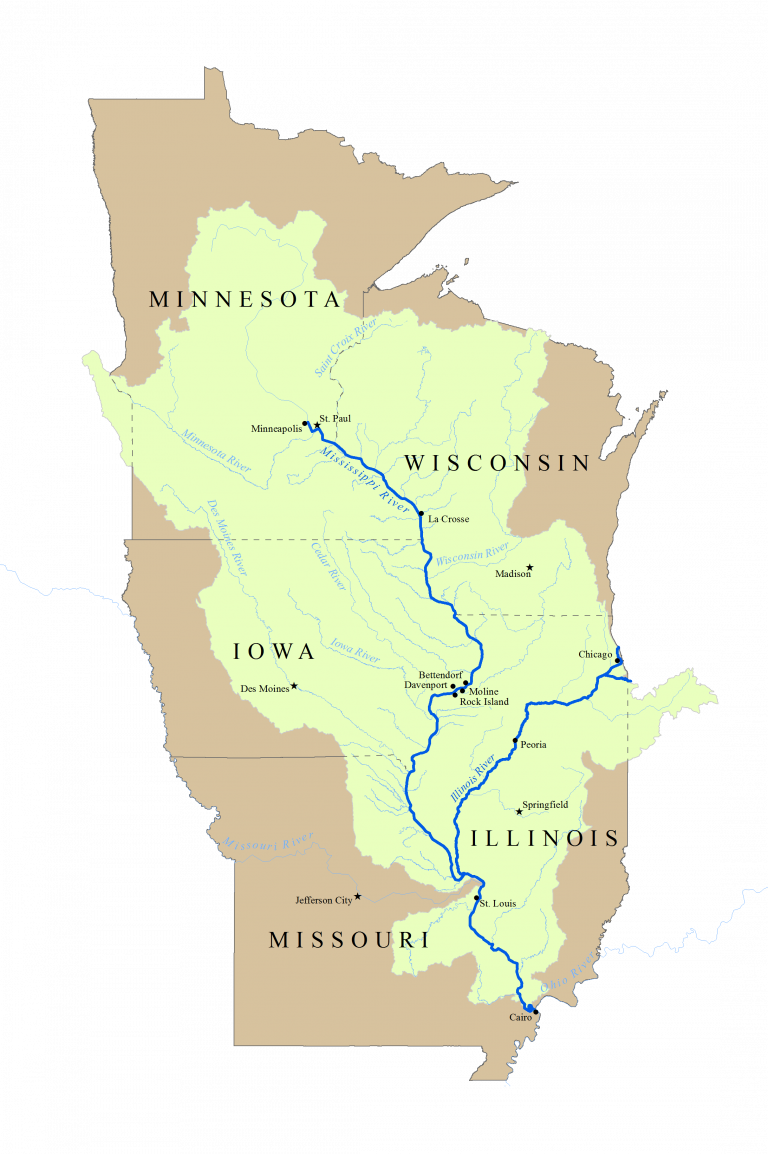
Mission
The purpose of UMRBA is to facilitate dialogue and cooperative action regarding water and related land resource issues. More specifically, the Association endeavors to:
- Serve as a regional interstate forum for the discussion, study, and evaluation of river-related issues of common concern to the states of the Upper Mississippi River Basin.
- Facilitate and foster cooperative planning and coordinated management of the region’s water and related land resources.
- Create opportunities and means for the states and federal agencies responsible for the management of water resources in the Upper Mississippi River Basin to exchange information.
- Develop regional positions on river resource issues and serve as an advocate of the basin states’ collective interests before Congress and the federal agencies.
As the leading organization in the Midwest dedicated to solving the complex water resource challenges facing the Upper Mississippi River Basin, UMRBA recognizes the essential importance of including all people and communities in the process of creating and implementing solutions to these challenges. UMRBA welcomes, respects, and appreciates all of the ways individuals identify by race, ethnicity, gender identity, sexual orientation, religion, disability, and socioeconomic stratum, and is consistently striving to expand the range of voices, experiences, and perspectives that are heard in the discussions we convene throughout the Basin. UMRBA is also committed to understanding and addressing the impact that its policies and program have on different people and communities, and working to ensure equity in opportunity and outcomes. If you have concerns or questions about these issues, please contact UMRBA Executive Director Kirsten Wallace at kwallace@umrba.org.
Fundamental Principles
The following principles are central to UMRBA and its member states:
Consensus —
UMRBA values its strong tradition and culture of building consensus
Integrated Management —
The Upper Mississippi and its watershed are a nationally significant economic, environmental, and social resource that requires balanced, integrated, and collaborative management, exceeding the capacity and authority of any one entity
Regional Focus —
UMRBA focuses on issues of multi-state interest and does not typically address matters internal to one state or of a bilateral nature
Board Leadership —
UMRBA is a Board-led organization, with staff advising and otherwise serving the needs of the Association’s member states, that does not advance perspectives, positions, or interests beyond those held jointly by its member states
Flexibility —
With respect to both longstanding and emerging issues, UMRBA seeks to anticipate and be responsive to evolving state needs and interests
Collaboration —
UMRBA places a high value on collaboration, whether the states are collaborating internally or engaging with federal agencies and other partners
Best Available Information —
UMRBA holds that water resources management decisions should be informed by the best available information while recognizing that decisions must frequently be made in the absence of all information that might be desired
Best Achievable Policy —
UMRBA supports the best achievable water resources policies that are in the collective interests of its member states
Primary Functions
Consistent with its mission, principles, structure, and governance, UMRBA performs the following primary functions on behalf of its member states, within available resources:
- Serve as a regional interstate forum
- Facilitate cooperative action and collaboration
- Monitor issues
- Foster communication and disseminate information
- Identify and voice the member states’ collective interests
- Augment the member states’ capacity on river-related issues
- Foster relationships with federal agencies and stakeholders
- Shape federal investment and policies
It is important to note that UMRBA has no direct land management or regulatory functions.
Strategies
UMRBA works to advance the common priorities and perspectives of Illinois, Iowa, Minnesota, Missouri, and Wisconsin by serving as an advocate, catalyst, convener, communicator, and developer. More specifically, UMRBA serves as an:
Advocate —
Pursue necessary investment and seek solutions through legislative and administration policies
Catalyst —
Advance solutions through integrated, collaborative, and science-based approaches
Convener —
Foster interagency and interdisciplinary collaboration, communication, and coordination
Communicator —
Increase awareness and appreciation of the economic and ecological value of the Upper Mississippi River and the ongoing efforts to improve its condition
Developer —
Create and maintain information or decision-support tools
Institutional Structure and Governance
UMRBA was formed as a successor to the former Upper Mississippi River Basin Commission (UMRBC), which was a joint federal-state Commission that was terminated by a Presidential Executive Order in 1981. The Governors of Illinois, Iowa, Minnesota, Missouri, and Wisconsin signed a joint resolution calling for “the continuation of an interstate organization to maintain communication and cooperation among the states on matters related to water planning and management.” Each Governor subsequently issued an Executive Order establishing his state’s membership in the Association.
UMRBA is structured as a 501(c)(3) non-profit association, with its sole members being the five states of Illinois, Iowa, Minnesota, Missouri, and Wisconsin. Pursuant to UMRBA’s Articles of Association and Bylaws, each Governor appoints one or more representatives and alternates to UMRBA. The mix of representatives and alternates is entirely at the individual Governor’s discretion, and those appointees are responsible for coordinating across agencies within their state as needed. The Association’s Board of Directors is composed of all duly appointed representatives and alternates, but each state has one vote on matters coming before the Board. Federal agencies with significant water resources responsibilities in the UMRS basin are invited to name non-voting liaisons to UMRBA. The Board meets quarterly in public session and also relies on several workgroups, many of which include both state and federal agency members.
